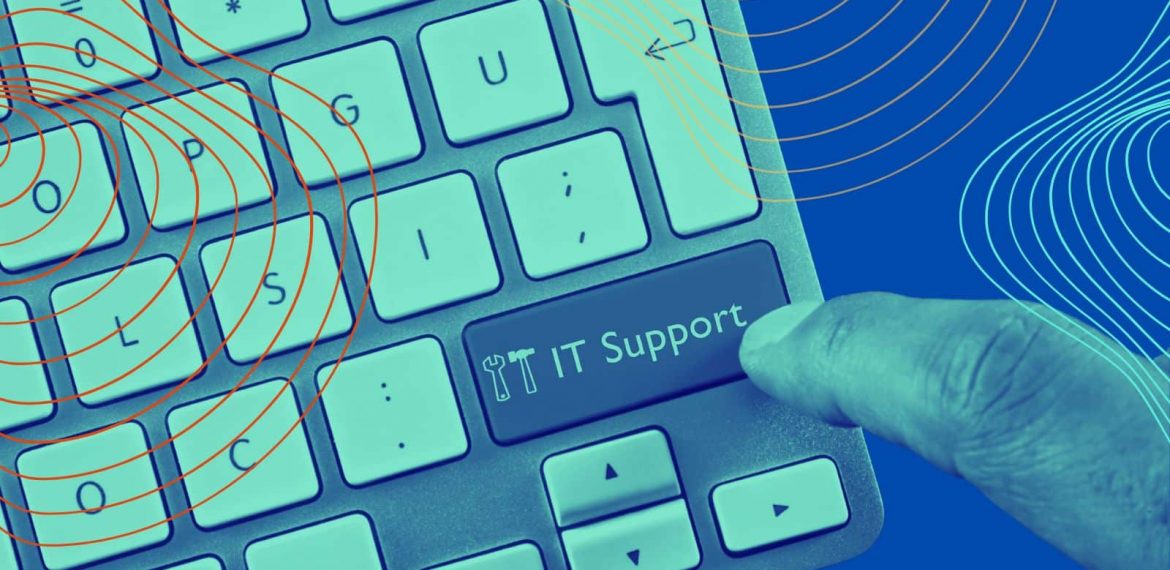
What Is IT Support?
What Is IT Support?
Information technology (IT) support refers to the support given to anyone having technological issues, which may include computer problems, printer issues and network shutdowns. IT Support essentially takes care of installations, and system and network maintenance, meanwhile offering support to users through a variety of ways, mainly by diagnosing issues and giving resolutions.
Technology, nowadays, is so heavily relied on by most companies, and one study found that from 2021 to 2022, the global IT services market grew by 13.5%, meaning that IT support is currently a sought-after service around the world.
What Does IT Support Do?
IT Support is such a broad term, as an IT specialist may have a wide range of tasks that they carry out, however, they often manage networks and systems operations through monitoring, diagnoses and creating resolutions for all tech concerns. IT support is usually defined through a three-tier service scale, which is outlined below:
Tier 1:
This is the most basic level of IT support on offer, usually giving assistance to simple tech issues including collecting and attending to customer requests via phone calls, emails or live chats, carrying out simple troubleshooting and solving issues in relation to software or hardware. If this level of support can’t resolve an issue, they will often create a ticket and forward it to tier 2. Their duties often include the following:
- Answering phone calls, responding to emails and starting to investigate before responding to the client’s issues
- Give support to the software, hardware and network users
- Ticket creation for issues that need to be passed on to tier 2
Tier 2:
Tier 2 IT support specialists are often much more knowledgeable and experienced than the first tier, and will have better access to company information. They will have extensive knowledge of the company’s hardware and software tools and deal with back-end problems. With this knowledge and skill, most issues are resolved here and don’t require advancement to tier 3 specialists. Their duties often include:
- Review the tier 1 task and attempt to come to a resolution
- Resolving advanced troubleshooting issues
- Repairing software or hardware
- Using remote control tools to resolve an issue
Tier 3:
Tier 3 support may do an extensive investigation into the problem, through coding or data analysis, to come to a resolution. Someone in this job position might be a creator, architect or engineer of the product, although not always. Tier 3 isn’t often used, but if it is, it will be resolved here and the solution sent back down to the lower tiers. Their duties often include:
- Analyses of tickets from both tier 1 and 2 to decide whether or not the issue can be resolved
- Controlled testing to find a solution.
- Offer a solution and send it back down to tier 1 or 2.
How Can IT Support Benefit Your Business?
Just like a mechanic, who you’d call to fix your car, IT support is the one to call when you’re having a computer system or network issue. They will often be able to resolve the problem in a timely manner, which will result in your business having a steady day of uninterrupted work and in turn optimise financial gain.
IT support will be there from the beginning, with the set-up and installation process, and continue to manage all of your systems and networks, often being available 24 hours to resolve emergency situations, too. Another beneficial thing about using IT support for your business is that they will help your IT infrastructure advance, as they analyse data and look at any inconsistencies that appear; and then make improvement suggestions, which can then maximise your marketing strategies or reduce operational costs.
Good IT support companies will focus on identifying the problem and preventing an issue before it arises, rather than fixing the problem after it’s occurred, and giving your business the upper hand on other companies. Furthermore, IT support will be able to ensure that your data is protected efficiently and securely, alongside taking the appropriate measures to protect sensitive data from being retrieved, lost or even stolen.


